Ritz Crackers for Dogs? Why Vets Say No to This Common Snack
- 25 Apr 2025 09:23
Ritz crackers – those buttery, slightly salty, perfectly flaky rounds – are a pantry staple in many homes. They're often present at gatherings, served with cheese, or enjoyed as a simple snack. When these familiar crackers are out, it's almost inevitable that our canine companions will cast hopeful glances, wondering if a crumb might fall their way. This leads many well-meaning owners to ask: can dogs eat Ritz crackers? While a single dropped cracker might not cause immediate alarm, deliberately feeding Ritz crackers to dogs is generally advised against by veterinarians due to their nutritional makeup and, more importantly, the serious risks associated with flavored varieties. This guide, developed with veterinary insights and EEAT principles (Expertise, Authoritativeness, Trustworthiness) in mind, will break down why Ritz crackers aren't a suitable treat for your dog.
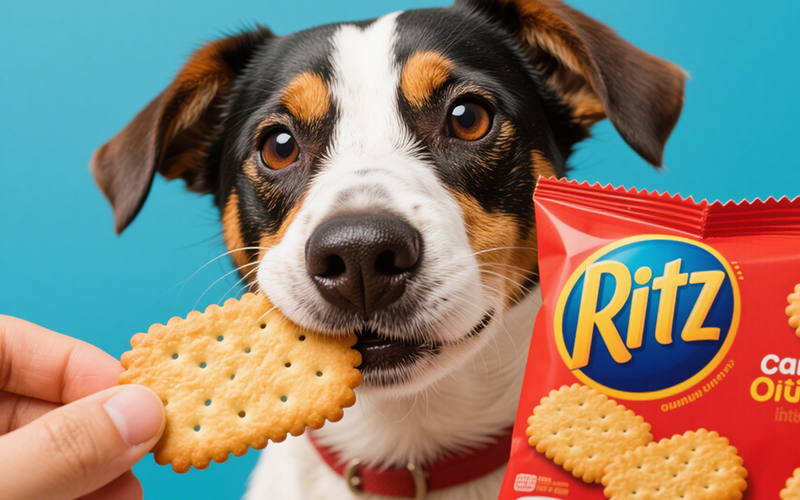
Unpacking the Cracker: What's Inside a Ritz?
To understand why Ritz aren't ideal for dogs, let's look at the typical ingredients in the original, plain variety:
Enriched Wheat Flour: The primary ingredient, providing carbohydrates.
Vegetable Oil: Often includes soybean oil, canola oil, and/or palm oil, contributing significant fat content.
Sugar: Added for flavor.
Salt: A key component of the cracker's taste profile.
Leavening Agents: Such as baking soda or calcium phosphate.
High Fructose Corn Syrup (HFCS): Another form of added sugar.
Soy Lecithin: An emulsifier.
While seemingly simple, several of these ingredients are problematic for dogs when consumed regularly or in significant quantities. Furthermore, the many **flavored** Ritz varieties introduce additional, often dangerous, ingredients.
Are Plain Ritz Crackers Toxic to Dogs?
Let's be clear: plain Ritz crackers are **not inherently toxic** in the same way that foods like chocolate, grapes, raisins, onions, garlic, or xylitol are. Ingesting one or two plain crackers is unlikely to cause severe poisoning in most healthy adult dogs. However, just because something isn't immediately poisonous doesn't mean it's safe or healthy. Plain Ritz crackers fall firmly into the category of "junk food" for dogs – offering little nutritional value and carrying potential health risks, especially when given frequently or in large amounts.
Why Even Plain Ritz Crackers Are a Bad Idea: The Health Risks
Even without dangerous flavorings, plain Ritz crackers pose several health concerns for dogs:
1. High Sodium (Salt) Content
Ritz crackers taste salty for a reason. While dogs need a small amount of sodium for bodily functions, the levels in processed human snacks like Ritz are far too high for their regular diet.
Consequences:** Excessive salt intake can lead to increased thirst and urination, dehydration, vomiting, diarrhea, and potentially elevated blood pressure. In severe cases or for dogs with compromised kidney or heart function, high sodium intake can lead to sodium ion poisoning (hypernatremia), a serious condition with neurological symptoms like tremors, seizures, and coma.
2. High Fat Content
The buttery richness comes from vegetable oils. While dogs need fat, the amount and type in Ritz crackers are not ideal.
Pancreatitis Risk:** Suddenly consuming a high-fat food is a known trigger for **pancreatitis** in dogs. This is a painful and potentially life-threatening inflammation of the pancreas that often requires emergency veterinary care and hospitalization. Symptoms include severe vomiting, diarrhea, abdominal pain, lethargy, and loss of appetite.
Obesity:** High-fat snacks contribute excess calories, leading to weight gain and obesity over time. Obesity significantly increases a dog's risk for arthritis, diabetes, heart disease, respiratory problems, and a shorter lifespan.
3. High in Refined Carbohydrates & Sugar (Including HFCS)
Made primarily from enriched wheat flour and containing added sugar and high fructose corn syrup, Ritz crackers are packed with simple carbohydrates.
Empty Calories:** These provide energy but lack the essential nutrients (protein, vitamins, minerals) dogs need. They contribute to weight gain without offering nutritional benefits.
Blood Sugar Spikes:** Simple carbs can cause rapid increases in blood sugar, which is particularly concerning for diabetic dogs but not ideal for healthy dogs either.
Dental Issues:** Sugars feed harmful bacteria in the mouth, contributing to plaque, tartar, gum disease, and tooth decay.
4. Low Nutritional Value
Ritz crackers offer virtually nothing beneficial for your dog. They lack adequate protein, fiber (despite being flour-based, it's refined), essential fatty acids, vitamins, and minerals required for canine health. Feeding them displaces opportunities to provide nutritious food or treats.
5. Potential Allergens (Wheat/Gluten, Soy)
Some dogs have sensitivities or allergies to wheat, gluten, or soy, all of which are present in Ritz crackers. Reactions can manifest as skin issues (itching, redness, hair loss) or digestive upset (vomiting, diarrhea, gas).
The Danger Zone: Why Flavored Ritz Crackers Are Especially Hazardous
If plain Ritz crackers are unhealthy, **flavored Ritz crackers are downright dangerous** and should **NEVER** be given to dogs. They often contain ingredients that are highly toxic:
1. Garlic Powder and Onion Powder (HIGHLY TOXIC)
This is the **most critical risk** associated with many savory flavored crackers (e.g., cheese, herb, vegetable varieties).
Allium Toxicity:** Garlic and onions belong to the *Allium* family and contain compounds that destroy canine red blood cells, leading to potentially fatal hemolytic anemia. Symptoms (lethargy, pale gums, weakness, rapid breathing, collapse) may be delayed for several days.
Potency:** Powdered forms are concentrated, meaning even small amounts can be toxic. **Any product containing garlic or onion powder is unsafe for dogs.** This makes answering "can dogs eat Ritz crackers?" with anything but NO essential when flavors are involved.
2. Excessive Sodium and Fat
Flavored varieties often have even higher levels of salt and fat than plain ones to enhance taste, amplifying the risks of sodium poisoning and pancreatitis. Cheese powders and other flavorings contribute significantly.
3. Artificial Sweeteners (Potential Xylitol Risk)
While less common in savory crackers than sweet snacks, be exceptionally wary of any "low-sodium," "light," or unusually flavored varieties.
Xylitol:** If a product uses artificial sweeteners, there's a risk it could contain **xylitol**, which is extremely poisonous to dogs, causing hypoglycemia and liver failure. Always check labels on human foods, but avoidance is safest.
4. Other Problematic Ingredients
Artificial colors, flavors (like MSG, which can cause reactions in sensitive dogs), preservatives, and high amounts of sugar in sweet varieties add further health risks.
What If My Dog Sneaked Some Ritz Crackers? An Action Plan
If your dog managed to grab a Ritz cracker (or several), here’s what to do: 1. **Identify Type & Quantity:** Determine if they were plain or flavored. If flavored, what kind? How many were eaten? This is crucial for assessing the danger. 2. **Check Ingredients (Crucial for Flavored):** If flavored, immediately find the packaging and check the ingredient list for **garlic powder, onion powder, xylitol, or chocolate** (if applicable). 3. **Prevent Further Access:** Secure the remaining crackers. 4. **Contact Your Veterinarian or Emergency Pet Clinic IMMEDIATELY:** * **If Flavored (Esp. with Garlic/Onion/Xylitol) or Large Quantity Eaten:** This is a potential emergency. Call immediately, providing all details (type, amount, ingredients, time, dog's info). Follow their specific instructions. Do not delay. * **If Plain & Only One or Two:** Still call your vet for advice. While less urgent, they can advise based on your dog's size and health history whether monitoring is sufficient or if concerns exist (e.g., high salt for a dog with heart issues). 5. **Monitor Closely:** If monitoring at home is advised (likely only for very small amounts of plain crackers in healthy dogs), watch for vomiting, diarrhea, lethargy, excessive thirst, abdominal pain, or signs of choking. For flavored cracker ingestion, monitor for specific toxicity symptoms as directed by your vet (pale gums, breathing changes, neurological signs). Report any abnormalities immediately. 6. **Do NOT Induce Vomiting:** Unless under the explicit direction of your veterinarian.
Ritz Cracker Safety for Dogs: Summary Table
This table highlights the key safety points:
| Ritz Cracker Type / Aspect | Safety Level / Concern for Dogs | Details & Recommendation |
| Plain Ritz Crackers | Unhealthy / Low Risk (in tiny amounts) | Not toxic, but high in salt, fat, refined carbs; low nutritional value (empty calories). Best avoided; tiny piece occasionally unlikely harmful but not recommended. |
| Flavored Ritz (Savory - with Garlic/Onion) | DANGEROUS / HIGHLY TOXIC | Garlic/Onion powder causes potentially fatal hemolytic anemia. High salt/fat risks. **AVOID COMPLETELY.** Emergency if ingested. |
| Flavored Ritz (Other Savory/Sweet) | DANGEROUS / POTENTIALLY TOXIC | High salt/fat/sugar. **Xylitol risk** in sugar-free types. Other harmful additives possible. **AVOID COMPLETELY.** |
| High Sodium Content | High Risk / Unhealthy | Risk of dehydration, sodium poisoning, bad for heart/kidney issues. |
| High Fat Content | High Risk / Unhealthy | Risk of pancreatitis, contributes to obesity. |
| Overall Answer to: Can dogs eat Ritz crackers? | NO. Plain Ritz are unhealthy empty calories. Flavored Ritz are dangerous due to toxic ingredients (garlic, onion, potential xylitol), high salt, and fat. Do not feed Ritz crackers to dogs. | |
Using Pet Tech for Quick Info: The PettureX App
When facing uncertainty about what your dog ate or understanding potential risks, having quick access to information is helpful while you contact your vet. The **PettureX** app offers features designed to support pet owners:
24/7 AI Veterinary Consultation: Use the AI chat for immediate general information. Ask questions like "What makes garlic powder toxic to dogs?" or "What are symptoms of pancreatitis?". This helps you understand the potential severity of a situation. *Remember, the AI provides general information and is not a substitute for professional veterinary diagnosis or treatment.*
Image Recognition for Pet Health:** Can assist in identifying visual concerns to discuss with your vet.
Animal Species Identification:** Useful for identifying potentially harmful plants or items.
PettureX can be a supportive tool, providing accessible knowledge to complement the essential guidance from your veterinarian.
Healthier, Safer Alternatives for Your Dog's Crunchy Cravings
If you want to give your dog a treat, especially something crunchy, choose from these much safer options: * **Dog-Specific Biscuits/Treats:** Select high-quality commercial treats with wholesome ingredients and appropriate nutritional profiles. Read labels carefully. * **Crunchy Vegetables:** Pieces of raw carrot, celery sticks, cucumber slices, or green beans offer a satisfying crunch with added nutrients and fiber. * **Apple Slices:** (Ensure core and seeds are removed, as seeds contain cyanide precursors). Offer small, crisp slices. * **Plain Cooked Meat (Jerky Style):** Small pieces of plain, dehydrated meat (ensure no harmful seasonings) can be a chewy/crunchy treat. * **Dental Chews:** Chews specifically designed to help clean teeth can satisfy the urge to chew while providing oral health benefits. Always introduce new treats gradually and ensure they don't make up more than 10% of your dog's daily calorie intake.
Conclusion: Keep the Ritz for Yourself, Choose Safer Snacks for Your Dog
In conclusion, while the question "can dogs eat Ritz crackers?" might seem simple, the answer, considering canine health and safety, is a clear **no**. Plain Ritz crackers are nutritionally poor "junk food" high in salt, fat, and refined carbohydrates. Flavored Ritz crackers pose serious dangers due to potentially toxic ingredients like garlic and onion powder, excessive sodium, unhealthy fats, and the potential presence of xylitol. Protect your dog's well-being by reserving Ritz crackers for human consumption only. Keep them stored securely out of reach. If accidental ingestion occurs, especially with flavored varieties, contact your veterinarian immediately. By choosing safe, healthy, species-appropriate treats, you provide your dog with enjoyable snacks that contribute positively to their health, rather than exposing them to the hidden dangers within a seemingly innocent buttery cracker.
Related
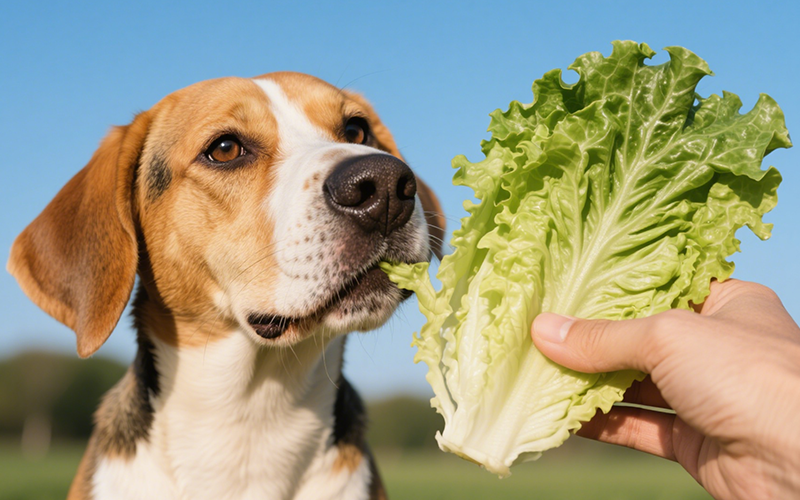
Crunchy Greens for Canines: Can Dogs Eat Romaine Lettuce Safely?
- 25 Apr 2025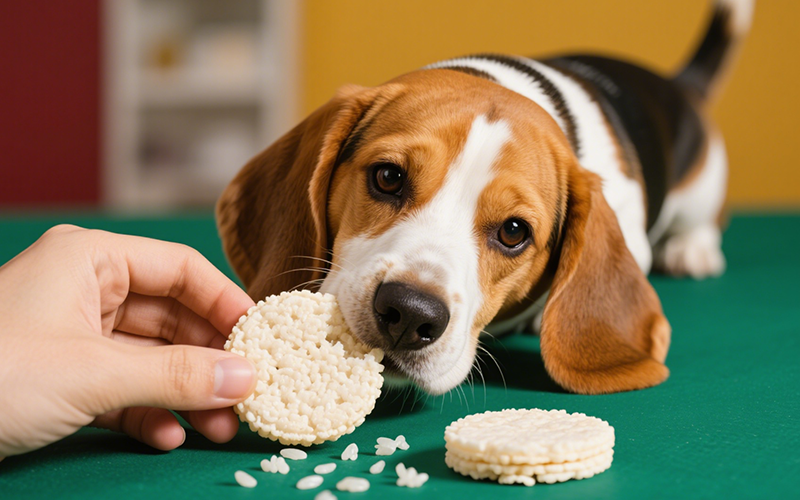
Rice Cakes for Rover? A Crunchy Question: Can Dogs Eat Rice Cakes Safely?
- 24 Apr 2025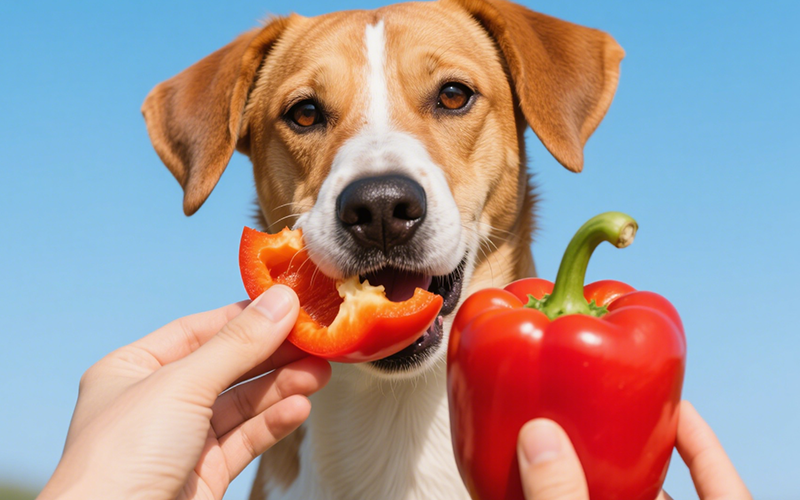
Crunchy & Colorful: Can Dogs Eat Red Bell Peppers Safely? A Vet-Approved Guide
- 24 Apr 2025
Raspberries for Rover? A Vet's Guide to This Berry Good Treat for Dogs
- 23 Apr 2025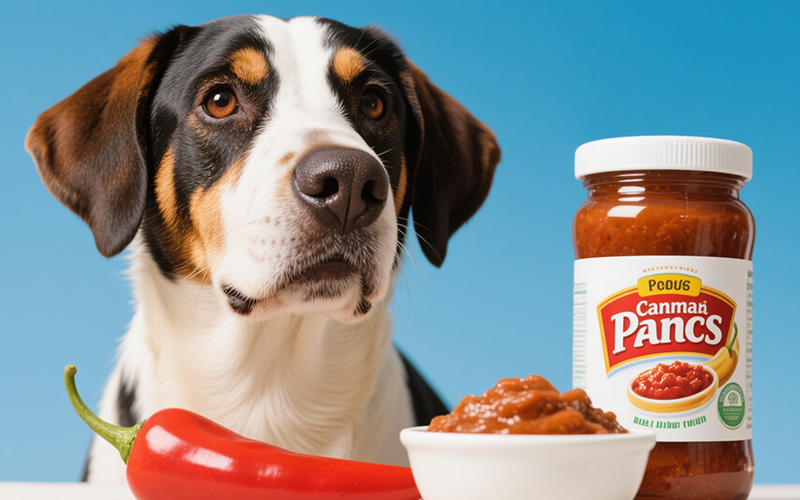
Ranch Dressing Dilemma: Can Dogs Safely Indulge? A Deep Dive into Why It's a Bad Idea
- 23 Apr 2025
Radish Bites for Your Buddy? A Vet-Reviewed Guide on Whether Dogs Can Eat Radishes
- 22 Apr 2025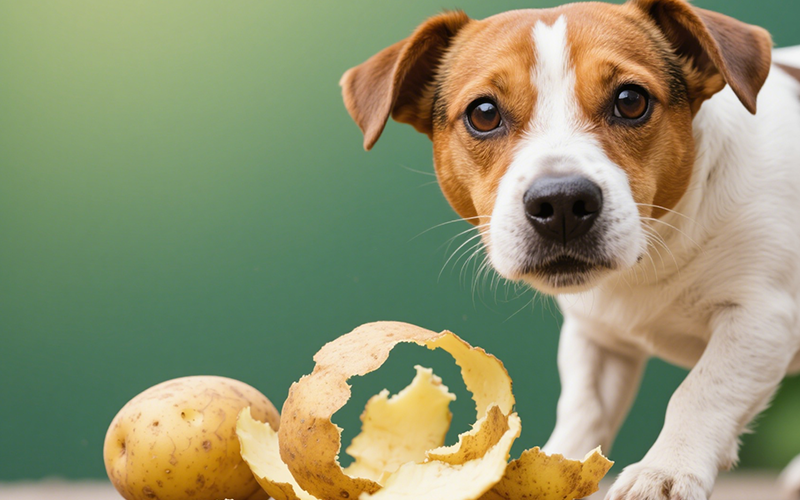
Potato Peels for Pooches? Unpeeling the Risks and Facts for Dog Owners
- 22 Apr 2025
Crunchy Curiosity: Can Dogs Safely Snack on Pork Rinds? A Deep Dive
- 21 Apr 2025
Pomegranate Seeds and Pooches: A Deep Dive into Whether Dogs Can Safely Indulge
- 21 Apr 2025
Can Dogs Eat Peaches? Vet Explains Benefits, Cyanide Risks & Safe Serving
- 16 Apr 2025
